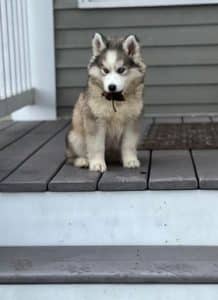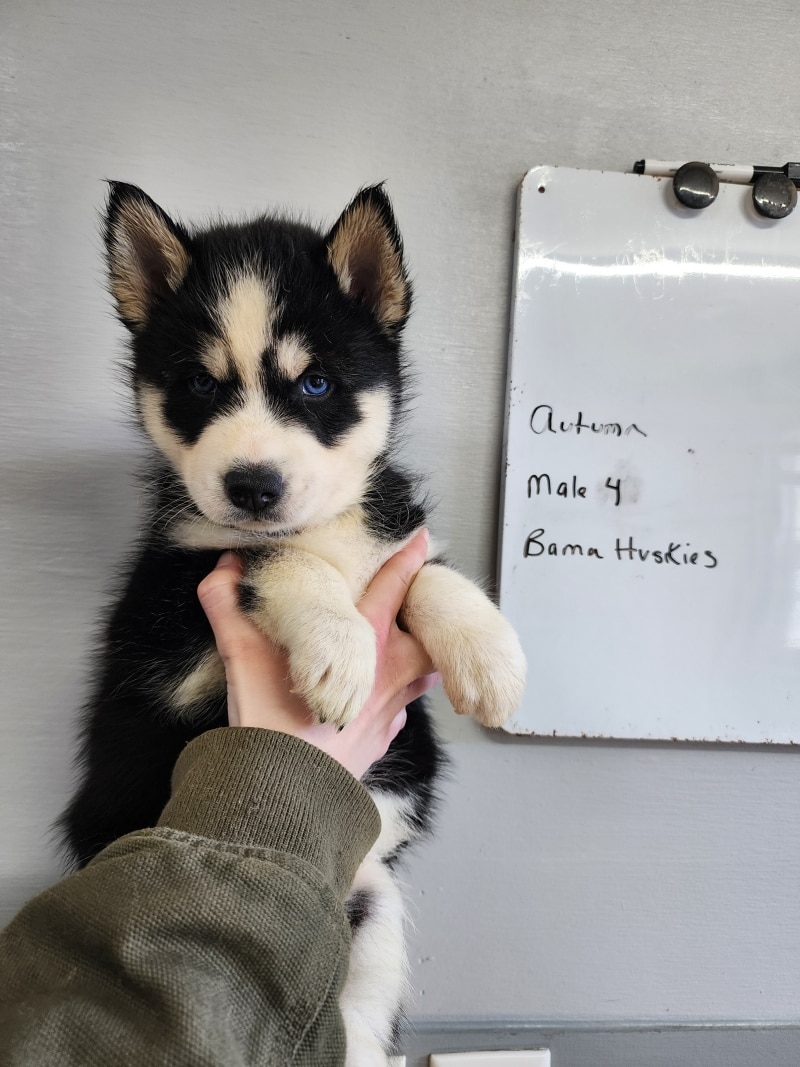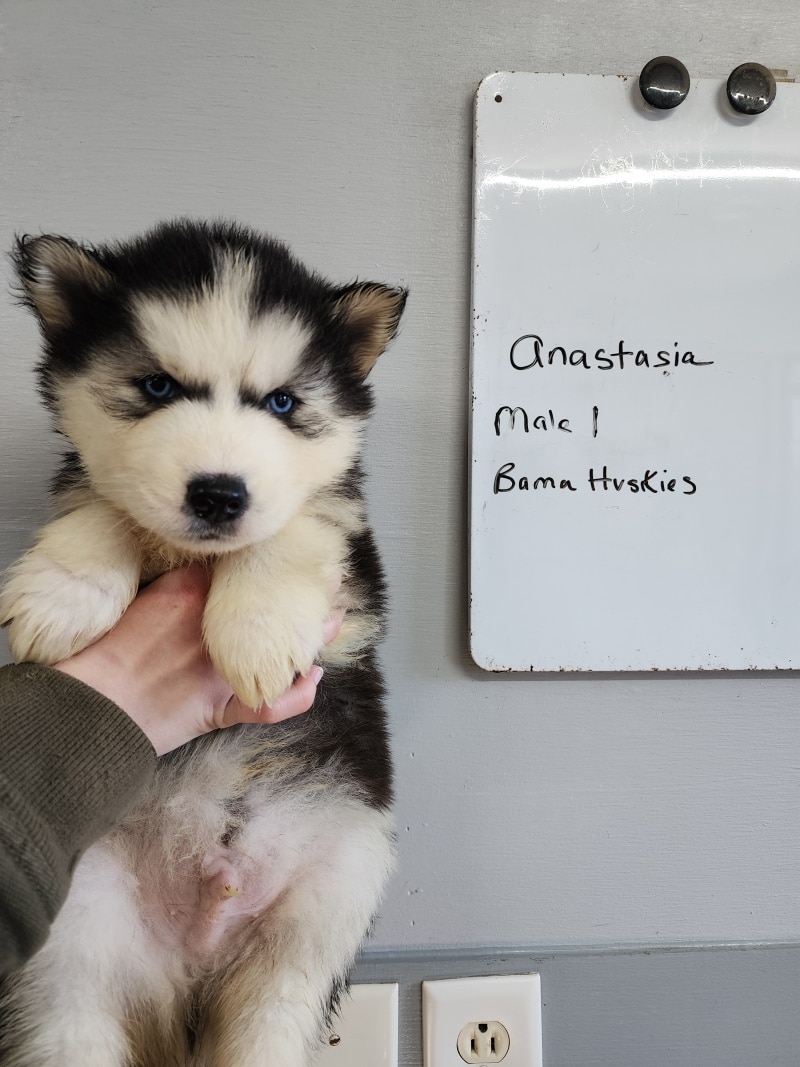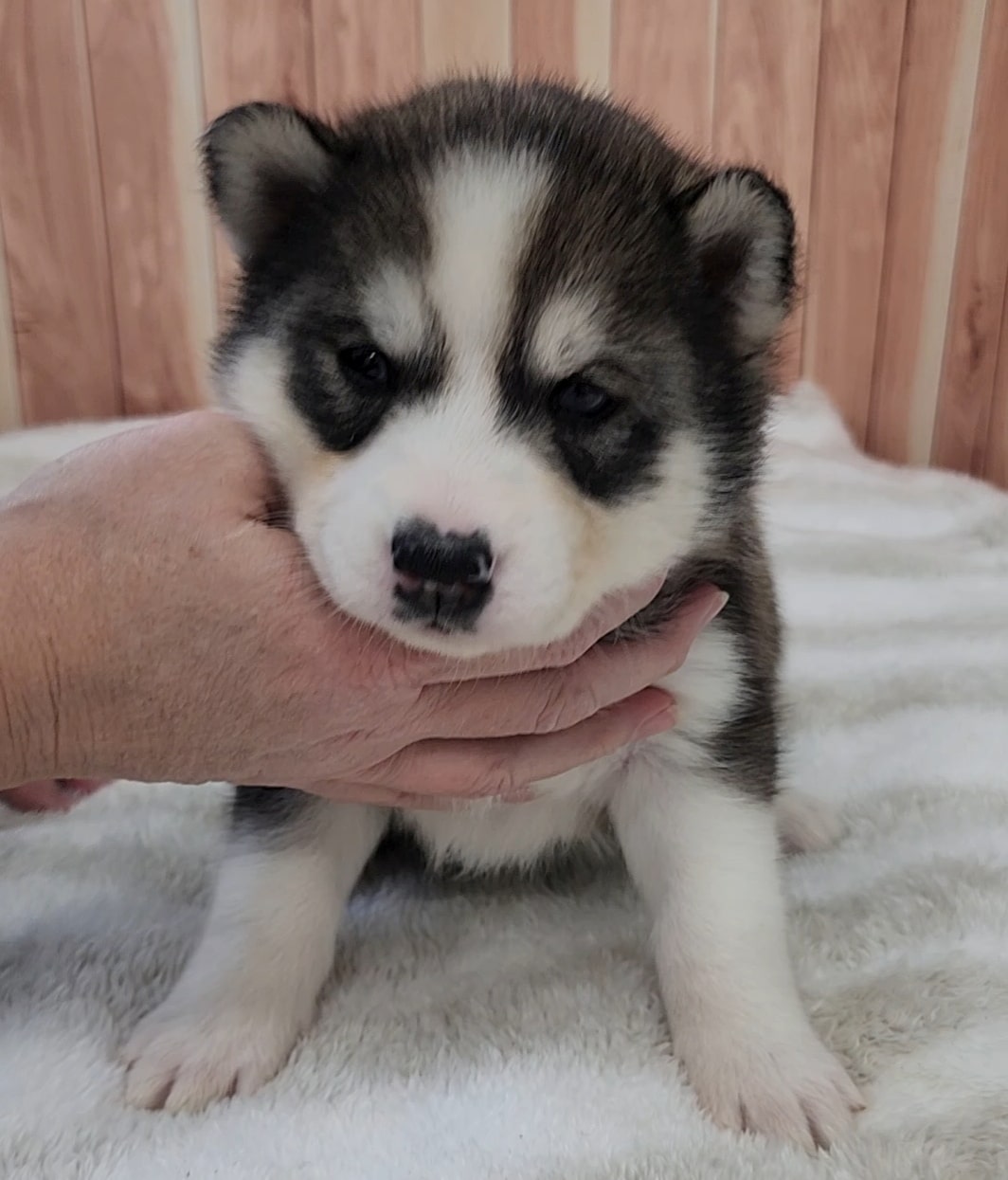
Are Siberian Huskies good with other dogs? Whether you’re welcoming a husky dog into a multi-pet family or you’re looking to turn your husky family dog into a social butterfly, understanding and embracing their temperament is key. Socialization is not just a luxury; it’s a must, starting as early as 4 weeks old. Initiating your pup into varied experiences early on ensures they grow up to be not just well-mannered but also well-adapted companions.
But how do you navigate the crucial period between 4 and 14 weeks, often considered the golden window for puppy socialization? And what about their inherent prey drive – does this make them a good fit with other pets? Don’t worry; I’ve got you covered! In this article, we’ll share controlled training tips, case studies of harmonious husky interactions, and tackle common challenges head-on to help your husky dog become one of the most sociable canines on the block. After all, are huskies a good family dog? With the right approach, absolutely! So, let’s unleash the potential of your four-legged friend and pave the way for a lifetime of pawsome friendships.
Tips for socializing your husky
Quick Separation: If one of your furry friends gets a bit too snappy during introductions, don’t fret! Just calmly separate them and take a breather. Rushing things can backfire, so slow and steady wins the race.
For those of you welcoming a new husky into your home, hats off to you! Keep them in a separate space from your other dogs for the first couple of days. It gives them time to settle in and sniff out their new surroundings without added pressures.
Prey Drive Awareness: Huskies can have a strong prey drive, so be extra careful when they’re around smaller pets. Training methods like the Be a Pack Method or the Gradual Approach can work wonders in teaching your husky to play nice with other dogs. And always have those high-value treats ready for positive reinforcement!
If, after all your efforts, your husky still shows signs of aggression, it might be time to call in the cavalry – a professional dog trainer can offer personalized guidance to smooth out those rough edges.
So there you have it, the inside scoop on helping your husky dog become the social butterfly you know they can be. With patience, consistency, and a whole lot of love, your husky will be the life of the dog park in no time! And hey, if you’re still wondering, “are Siberian Huskies good with other dogs?” With the right approach, they’re not just good; they’re paw-sitively great!
Siberian Huskies and Smaller Pets
Let’s chat about how our beloved Siberian Huskies mingle with the smaller, fluffier members of the animal kingdom. As much as we adore our husky dogs for their social dog demeanor, their strong prey drive can’t be ignored. Yep, those wolf-like instincts may kick in when they spot a petite pal scurrying by, leading them to give chase – and not always in friendly tag-you’re-it fashion (Naughty Husky). But fear not, fellow Husky enthusiasts! With the right approach, your husky family dog can learn to coexist peacefully with their pint-sized roommates.
Slow and Steady Introductions: Always start with both your Husky and the smaller pet on leashes in a neutral spot. It’s like a diplomatic meeting between countries – everyone’s polite and on their best behavior. Positive associations are key; treats and praise go a long way when they show calm interest or indifference to each other.
Creating a Safe Haven: Inside our homes, it’s like setting up a mini animal kingdom where everyone needs their own space. Cats, for instance, should have their own escape routes – think cat trees or baby gates for those “I need my space” moments. Huskies may treat one cat as part of the pack but don’t assume they’ll be as gracious with all cats. It’s like having a favorite cousin at family gatherings – you’re cool with them, but that doesn’t mean you want to hang out with the whole extended family (Chewy).
Exercise and Mental Stimulation: A bored Husky is a recipe for mischief. Ensuring they get their fill of exercise and brain games can help prevent that pent-up energy from turning into a Tom and Jerry episode. And let’s be real, we want our Husky chasing their tail, not the house hamster (Forever Husky).
In the grand scheme of things, whether are Siberian Huskies good with other dogs or tiny critters, it largely hinges on us – the devoted owners. Proper obedience training, plenty of socialization, and a dollop of patience can set the stage for a harmonious multi-pet household. Always remember to supervise their interactions, especially in the beginning. It’s like being a referee in a fluffy, friendly game where everyone needs to play nice.
Training Tips for Harmonious Multi-Pet Households
Establish a Pecking Order… But Make It Fun! We’re not running a boot camp, but a little structure never hurt anybody, right? Start by setting up a stable routine for each pet. This means separate feeding times to avoid those dinner-time glares and dedicated one-on-one bonding time to quell any rising jealousy. It’s like giving each of your furry friends their own VIP pass to your heart! And hey, when you’re training your Husky dog, remember they’re social dogs, so they’ll appreciate the extra attention.
Personal Space is Sacred: Just like us, our four-legged companions need their own cozy corner. Carve out private areas where each pet can retreat for some zen time. It’s their personal no-socializing zone where they can recharge their batteries and prepare for their next playful encounter.
The Art of Supervision: Keep your eyes peeled like a hawk (but more friendly, of course) when your pets are mingling, especially during the early days. You’re the peacekeeper, ensuring everyone plays nice and shares their toys. If you spot any fur starting to bristle, it’s time for a gentle time-out.
Station Training – All Aboard the Patience Train! Picture this: each of your dogs has their own ‘station’ or spot. It’s their personal chill-out zone where they learn to wait their turn like a pro. Initially, you’ll be dishing out treats like it’s Halloween, praising them for their saint-like patience. But as they get the hang of it, you can start to ease up on the treat pedal and shift your focus back to the husky dog in action. And don’t forget to rotate the spotlight so each pooch gets their moment to shine.
Incorporating these tips into your daily routine will not only answer the burning question, “are Siberian Huskies good with other dogs?” but also showcase that, yes, are husky good dogs in a harmonious multi-pet household. With these strategies, your husky family dog will be the epitome of a social dog, and you’ll be basking in the glow of a peaceful pet-loving home.
The Role of Socialization
Oh, the joys of puppyhood! If you’re bringing home a Siberian Husky, buckle up for a wild ride of socialization that’s going to set the stage for their entire life. Now, we’ve already chatted about how are Siberian Huskies good with other dogs and the whole shebang about their temperament, but let’s dig our paws into the nitty-gritty of socialization.
The Early Bird Gets the Worm: Just like we humans need to learn the ropes of social etiquette, our Husky pups need to start their socialization journey as tiny fluffballs. From the tender age of 4 weeks, breeders should be giving these pups a gentle nudge into the world of human touch, making sure they’re comfy and cozy with our two-legged kind of love. It’s like prepping them for a lifetime of snuggles and pets, and who wouldn’t want that?
Confidence is Key: Imagine your Husky strutting into a dog park, head held high, tail wagging, ready to mingle. That’s the dream, right? Proper socialization is the golden ticket to a confident, well-adjusted furball who can tackle new scenarios without turning into a scaredy-cat—or should I say, scaredy-dog. It’s vital for their mental and emotional well-being, and let’s be real, a happy Husky means a happy you!
It’s a Small Window for a Big World: The clock’s ticking, folks! Between 4 to 14 weeks old, your Husky pup’s brain is like a sponge, ready to soak up all the social cues and learn that the world isn’t such a scary place. Miss this window, and you might find yourself with a pup more skittish than social. So, let’s make every moment count!
Now, let’s break down the socialization steps into bite-sized kibble, shall we?
Mix It Up: Your Husky’s social calendar should be as diverse as a doggy buffet. Introduce them to a variety of peeps, pups, and even those non-furry objects that might seem odd to them. Keep it controlled, keep it positive, and watch as your husky dog blooms into a social butterfly.
Puppy Playdates and Classes: Get your Husky’s tail wagging with some playdates! Make sure their new furry friends are up-to-date on shots, and consider enrolling them in a puppy class. It’s like kindergarten but for pups—learning, playing, and making friends. It’s all about good vibes and good times!
The Great Outdoors: Regular strolls around the neighborhood, trips to the park, and tagging along to outdoor events are like socialization gold for your Husky. It’s a big world out there, and your husky family dog is ready to explore every inch—with you by their side, of course!
Playdate Etiquette: Organize playdates with dogs that match your Husky’s vibe—similar size, similar temperament. It’s like setting up a doggy blind date, but with less awkwardness and more tail-wagging.
Remember, socialization isn’t a one-and-done deal. It’s a lifelong journey for your Husky. As they grow older, they might start giving the side-eye to new experiences, so keep the social train chugging along. And if you ever hit a snag, where your Husky’s inner wolf is more growl than howl, it might be time to call in the pros. Behavioral issues can be a tough bone to crack, and sometimes, you need that expert touch.
Socializing your Husky isn’t just a treat for them; it’s a bonding buffet for you, too. It’s like building a friendship that’s deeper than the fluffiest Husky coat. And hey, if you’re rescuing one of these majestic creatures, they’ve likely had a taste of socialization, but the feast isn’t over. Keep dishing out those social experiences, and you’ll have a Husky that’s not only good with other dogs but a true ambassador of the breed.
So, are huskies a good family dog? You betcha, especially when they’re social dogs with a diary full of doggy dates and adventures. Keep up the social hustle, and you’ll be the proud parent of the most popular husky dog on the block!
Mishka, the three-month-old bundle of Husky energy, had a bit of a rough start with her doggy manners. Picture this: a tiny furball with more sass than a reality TV star, getting herself into a pickle with her aggressive play. But her family didn’t throw in the towel; they enrolled her in a puppy obedience class. Sure, she had to sit out from group activities, but that didn’t stop the learning train.
The game-changer? A simple “drop” exercise. With high-value treats in hand, her family taught her the art of letting go. And voilà! Mishka learned that sharing is not just caring, but also pretty darn rewarding.
Let’s talk about Meeko, the one-year-old Husky who took a crash course in obedience from a trainer. Just one week, folks, and this pup was like a Husky 2.0—more attentive, more chill, and way better at listening. It’s like he graduated from puppy kindergarten with honors.
Now, for all you Husky enthusiasts wondering, “are Siberian Huskies good with other dogs?” let’s lay down some golden rules for socialization success:
Do’s: Begin early, aim for daily social experiences, start with controlled environments, and introduce them to a variety of people and pooches. Gradually expose them to different places and situations, keeping it positive and rewarding.
Don’ts: Avoid overwhelming your Husky, ignore their body language, force interactions, or rely on negative reinforcement. Steer clear of making dog parks the be-all and end-all, shying away from strangers, or being inconsistent with your socialization efforts.
Remember, are huskies a good family dog? Absolutely! Especially when they’re social dogs who’ve had the chance to learn the ropes of good behavior. With a bit of patience and a lot of love, your husky family dog will be the epitome of a well-mannered, furry friend.
Common Challenges and How to Overcome Them
Alrighty, fellow Husky aficionados, let’s tackle some common challenges head-on and transform those “oh no” moments into “ah-ha!” triumphs for you and your husky dog. Here’s how we keep that independent streak in check and channel those instinctual behaviors into something positively pawsome:
Independence Day, Every Day: Huskies are known for their free-spirited nature, which can sometimes translate to selective hearing when it comes to commands. To overcome this, we’ve gotta be more interesting than the squirrel across the street. Use high-value treats and make training sessions a game they just can’t resist. Consistency is your best friend here, so keep at it, and your husky family dog will start seeing you as the leader of the pack .
The Great Escape Artist: Ah, the Houdini of the dog world! If your Husky is more escape artist than stay-at-home pup, it’s time to up the ante on their exercise regime. A solid hour of running, playing, or hiking will help quell those escapist tendencies. A tired Husky is a happy Husky, and a happy Husky is less likely to go digging for freedom.
The Symphony of Howls: Huskies are vocal, and while their howls can be music to our ears, sometimes they crank up the volume a bit too high. To keep the neighborhood peace, engage their minds with puzzle toys and regular training sessions. This mental stimulation helps reduce the urge to serenade you (and everyone else) at all hours.
Remember, every Husky is an individual, so what works for one may not work for another. Keep the training fun, be patient, and soon enough, you’ll have a Husky who’s not only good with other dogs but also a joy to have around the house. And, if you ever find yourself in a pickle, don’t hesitate to reach out to a professional trainer. Sometimes, a little expert advice is all you need to get back on the right track. Keep these tips in your back pocket, and you’ll be well on your way to having a well-behaved, social dog that’s the envy of the neighborhood!
Conclusion
Throughout this exploration of the Siberian Husky’s social aptitudes, we’ve uncovered a wealth of strategies to harmonize their interactions with other pets and their role within the family unit. The shared insights emphasize consistency, proper introduction, and the importance of an early, varied socialization dog, all driving towards a common goal—cultivating a well-adjusted and socialized Husky.








